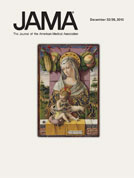 Yesterday, we reported on a retraction in the Journal of Clinical Microbiology involving plagiarism and author issues. Well, it turns out we only had half the story.
Yesterday, we reported on a retraction in the Journal of Clinical Microbiology involving plagiarism and author issues. Well, it turns out we only had half the story.
Thanks to a comment on Derek Lowe’s In the Pipeline blog, which picked up our item yesterday, we’ve learned of a remarkable pair of letters in the journal about the paper. (We missed the letters because we didn’t originally see the “This article has been cited by other articles” section of the notice page, and the people involved, who might have made reference to it, haven’t returned our requests for comment.) At the core of the matter is whether — as the authors of one letter strenuously argue — the publication owes its readers the same kind of apology it served up to the scientist whose work was plagiarized in the offending article. The answer they received is an equally vehement no.
We think the exchange is noteworthy enough that we’re posting it below. Before we do, though, we’ll state that journals and editors frequently apologize to their readership in retractions, so that’s not really what’s at stake here. Rather, what the debate drives at is, in a sense, whether journal reviewers have a sort of fiduciary responsibility to the scientific community.
We also need to correct the record. In our original post, we surmised that we knew who the plagiarizing author was (although we did not name that person). Turns out, as letters below indicate, our hunch was off base.
Now to the letters: Continue reading Should journals apologize to victims of plagiarism? More on Journal of Clinical Microbiology case
 Last week, we reported on an uniformative retraction notice in Molecular Biology and Evolution (MBE), an Oxford University Press (OUP) title, that the publisher wanted $32 to read. To OUP’s credit, they quickly acknowledged that the retraction hadn’t been handled properly.
Last week, we reported on an uniformative retraction notice in Molecular Biology and Evolution (MBE), an Oxford University Press (OUP) title, that the publisher wanted $32 to read. To OUP’s credit, they quickly acknowledged that the retraction hadn’t been handled properly.






